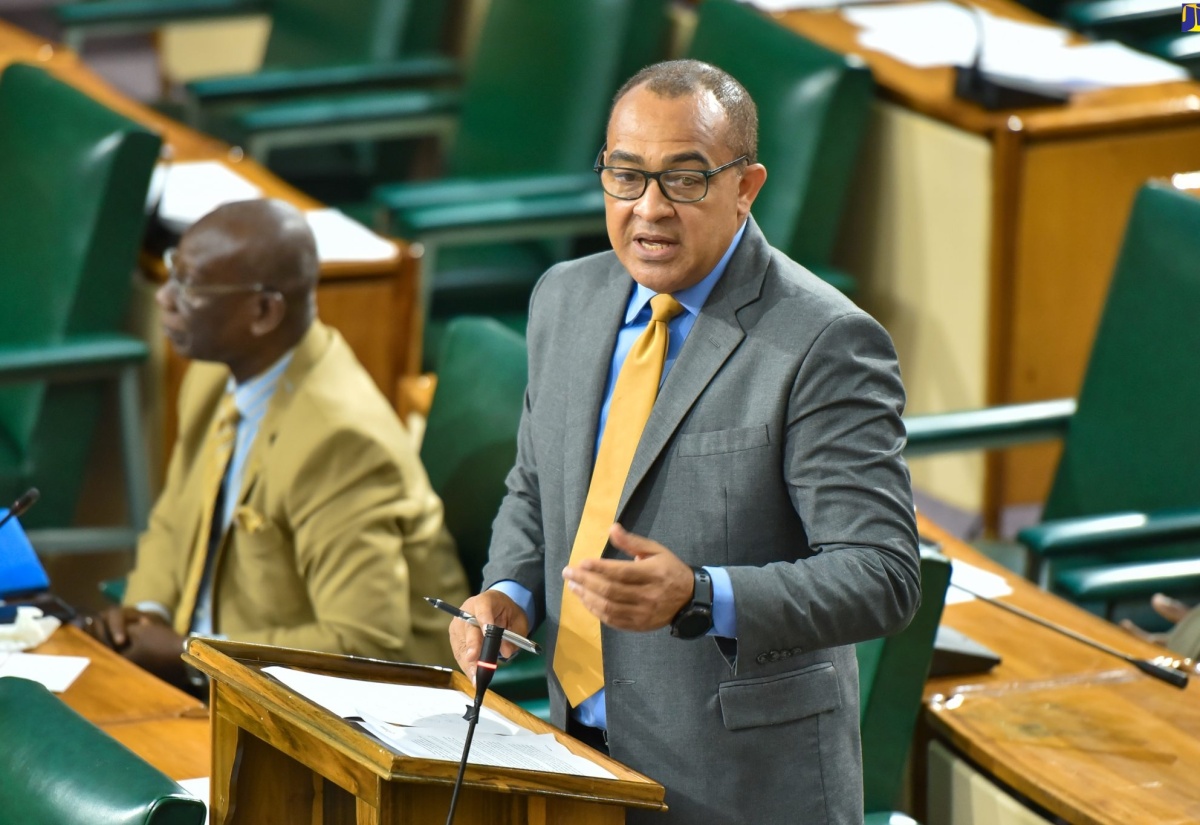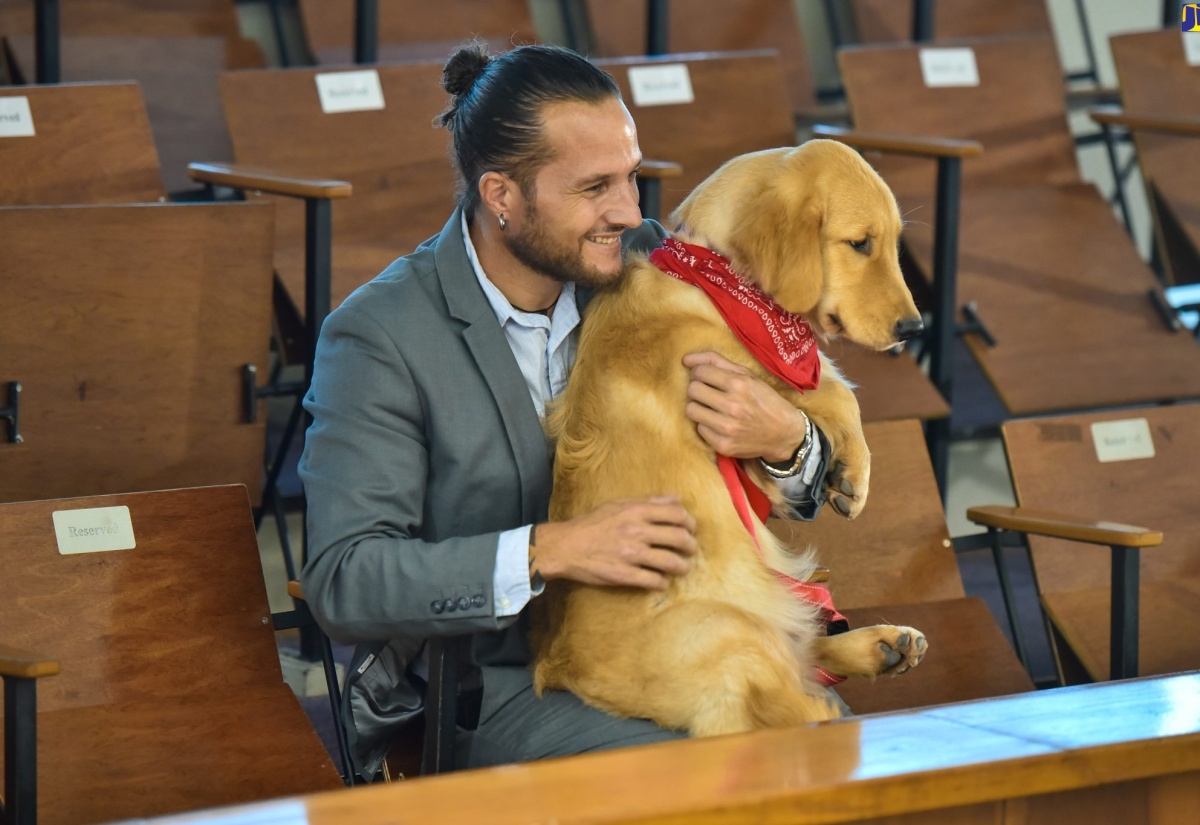Animal Assisted Recovery Pilot Project at Bustamante Hospital
By: , November 23, 2022The Full Story
An Animal Assisted Recovery and Care (AARC) Pilot Project will be introduced at the Bustamante Hospital for Children, to provide comfort and aid in the recovery of the paediatric patients undergoing surgery or medical treatment at the facility.
Minister of Health and Wellness, Dr. the Hon. Christopher Tufton, made the announcement during a statement to the House of Representatives on Tuesday (Nov. 22).
The initiative will be implemented this Christmas and will run for 18 months.
Dr. Tufton said that among the objectives is to reduce the anxiety and stress associated with hospitalisation; to reduce the length of hospitalisation; to lessen the need for pharmacological interventions; and to improve the social environment for healthcare delivery.
Animal-Assisted Interventions (AAIs) are recognised globally as having widespread benefits for both patient and healthcare staff.
Dr. Tufton noted that extensive and ongoing research into the role of AAIs in providing complementary healthcare for paediatric patients in the United States (US), show a reduction in behavioural and psychological distress, less pain and distress, lower levels of depression, shorter recovery time, and improved satisfaction with hospitalisation.
“In Jamaica, there has never been an AARC project and, therefore, in order to evaluate its effectiveness in the hospital setting and its effect on paediatric patients, this pilot is proposed,” Dr. Tufton said.
He noted that the project is a patient-centred intervention that will complement healthcare delivery to hospitalised paediatric patients undergoing procedures or who require long-term hospitalisation.
A Golden Retriever named ‘Dr. Teddy Barks’ and affectionately called ‘Teddy’ is the brand ambassador for the project and will be the main therapy animal.
The Health Minister informed that several other animals will be used in the project, including birds, rabbits and kittens, following appropriate screening.
“They are to come from either the Jamaica Society for the Prevention of Cruelty to Animals (JSPCA), The Hope Zoo or the Montego Bay Animal Haven. The Hope Zoo will be responsible for Teddy’s full care and maintenance under this pilot project,” Dr. Tufton told the House.
He informed that a staff sensitisation session was conducted at the hospital on April 28 to provide an overview of the pilot and obtain feedback and recommendations prior to implementation.
The Health Minister said mitigation strategies will be guided by a Policy and Procedural Guideline Document that was developed to outline the contingent actions for the safe implementation of the AARC Pilot Project.
“The document was created in collaboration with representatives from diverse disciplines including epidemiology, veterinary, human medicine and healthcare administration and covers several areas including, but not limited to, policies and procedural guidelines on patient suitability, infection control and visitation protocols,” Dr. Tufton said.
For paediatric patients to participate in the pilot, they should meet the Patient Inclusion Criteria as detailed in the document and prior to participation, the consent of the parental or guardian must be obtained.
The policy and procedural document also outlines various procedures that will be utilised to provide for the safety of the animals, patients, visitors and employees involved in the pilot project.
Bustamante hospital has been assessed to ensure safe and effective interactions between the patients and the animals.
Dr. Tufton said the hospital has in place, established Infection, Prevention and Control Protocols and the project will be implemented in keeping with those measures.
“In the event that there is increased admissions of children, overcrowding and/or an outbreak of a communicable disease, implementation will be suspended,” he indicated.
Dr. Tufton said the introduction of the project at Bustamante, which is the only specialist hospital in the English-speaking Caribbean catering to patients from birth to 12 years, provides an opportunity for further studies on the mental health needs of paediatric patients.
Other expected outcomes are: a reduction in the physiological and self-reported symptoms of anxiety and depression; improvement in assisted and independent movement; provision of non-pharmacological method for addressing anxiety, stress, and pain; reduction of anxiety and trauma associated with hospitalisation; as well as a reduction of loneliness and depression in an unfamiliar setting.
The South East Regional Health Authority (SERHA), will oversee the implementation of the project, while a multi-sectoral AAI Committee has been convened to provide technical coordination and support.
That Committee will monitor and evaluate the project to include animal handler compliance and animal welfare.
Members includes representatives from the Veterinary Services Division; Ministry of Agriculture and Fisheries; JSPCA; Montego Bay Animal Haven; Hope Zoo; and representatives from SERHA and the Ministry of Health and Wellness.
Dr. Tufton said evaluations will be done at six-month intervals and a monitoring and evaluation framework has been developed to assess the pilot.
“If it is successful, a Cabinet submission will be made seeking approval for the development of an AARC Programme in Public Health facilities island-wide,” Dr. Tufton said.



